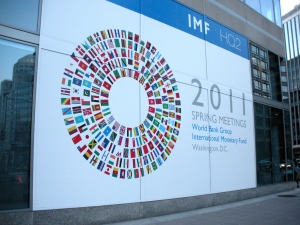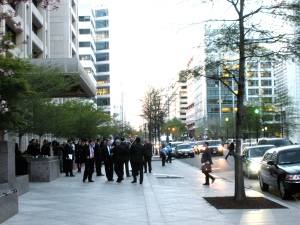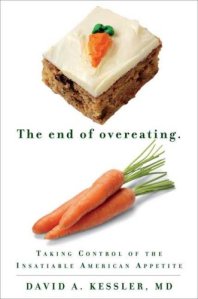So everyone who knows me knows that I have a thing for books, including a sort of relationship with those that I aquire. This means that I remember most that I possess. It might not seem that strange, but I have over 600 books only in my 25 m2 apartment in Stockholm, at least 100 in the US, and a few at our summer house. However, even though I know which ones I have, keeping track of where they are seems to be a little more difficult at times. Now since I was going through Stockholm before going to France, I had planned to pick up my €2, 700 pages paperback copy of The Three Musketeers in French. I could not think of any more appropriate reading for my summer holiday here in France. But no, of course I couldn’t find it! I looked and looked and looked around the apartment, but it was nowhere to be found. Now that I think about it, I probably have it at our summer house. Anyway, buying a new copy is of course not an option, so I am now reading Richard Yates’ “Young Hearts Crying” instead. Considering the first chapters of the book, you can probably expect a book review similar to the one that I wrote after having read Revolutionary Road! (And for you who haven’t read Yates yet – do! He gives good reminders of how easy comfort takes control over our lives and suppresses passion and dreams. Life is short and while it is easy to be convinced otherwise, really living is not what is promoted on TV.)
Category Archives: On Books, Movies, Education, and Conferences
A Fantastic Mean of Communication!
Sometimes having a blog is a really good mean of communication. My mom just sent me an e-mail saying that she read the below post and went out and got me a book for my birthday!
Leaving the Topic of Strawberries Behind Me and Looking Forward to New Books
Earlier today, I submitted my second and last assignment for this semester for my Food Policy MSc Program. The assignment was to write a food system governance analysis for a commodity and I chose to write about the strawberry sector. It was definitely a juicy topic but unfortunately, I wasn’t very happy with my paper. A deadline is however a deadline, and I had no other choice but to submit it. I was asked by someone if I learned a lot and he then pointed out that if so, that should be what was most important with such assignment. It is true of course, but I can’t help feeling that I want to produce something readable too!
Anyway, it is very nice to have completed the second out of five semesters. What I now look forward to over the summer is reading. Not that I didn’t read this past semester, but reading whatever I choose, and not just assigned articles. Ironically, I just ordered three new books on the food sector from Amazon, which a girl in my program recommended a while ago: Julie Guthman’s Agrarian Dreams, Paul Robert’s The End of Food, and Upton Sinclair’s 1906 classic The Jungle. I can’t wait to start reading them! And then some novels! And my Romanian books! Not sure I will have time to work these next few weeks… But book reviews to come for sure over the next months.
If Only This International Event Could Have Taken Place A Week Later…
The World Bank and IMF Spring Meetings are taking place this weekend and the block around 19th and H Street is filled with delegates from all over the world. Not even outside the IMF across the street from my office are there normally this many men dressed in black. Thursday morning, I walked in together with French Minister of Finance Christine Lagarde and her team, followed by a photographer who franticly was taking pictures (needless to say, I checked Le Monde after to see if I ended up on a press photo), and this weekend I have been invited both to the House of Sweden to listen to Swedish Minister of Finance Anders Borg, as well as to the Swedish Residence for lunch with the Swedish delegation. It would have been quite interesting, especially since Sweden is predicted to grow with around 5 % this year and has its finances in order as opposed to the US and most of the EU countries. Unfortunately, I am struggling with an assignment for my Food Policy Master’s which is due on Monday, so except for the weekly Saturday brunch with Patrick this morning, I am locked up in my apartment this weekend. But since one of the issues discussed during the Spring Meetings is the continuing rise in food prices, writing a paper on food systems it is probably a better use of my time anyway.
The Political Economy of Food
My second semester on the Food Policy program that I am doing just started and over the next couple of months, I will study the political economy of food. It means looking into the actors that influence food policy, trade and commodity standards, and much more. It is extremely interesting and I am very excited! Interestingly enough, I just saw this ad on TV the other day, by an organization called Americans Against Food Taxes. I think that for most people that are a little concerned about what they eat, taxes on the products mentioned in the ad make sense, especially in times of budget deficits and increasing health costs. The ad seems to target a particular group of consumers in the U.S. though, but while there is an air of Tea Partyism in the message, I suspect that it is financed by a completely different interest group.
In Bed With a Cold But in the Company of a Good Book
I caught a cold and feel completely out of it: Really dizzy and with a headache, and totally incapable of doing anything productive. Fortunately, A gave me a really good book for Christmas: The End of Overeating by MD David A. Kessler, so I have spent part of the day in bed, reading. The End of Overeating explains the brain’s reaction to three of the food system’s most unhealthy components (salt, sugar, and fat, and especially the three in combination), and how the food industry uses variations of these three ingredients to create eatables we not only like but also find difficult to resist and tend to overeat. (I write eatables because some of these products can hardly be defined as food.) It is very interesting reading and I can really recommend it!
Studies, Studies, And More Studies
I know that I have been terrible at updating this blog lately, but my studies have taken over my life. More or less anyway. Last semester, I had so much work and other things going on that I didn’t manage to do that semester’s last class in Romanian, and so I am taking it now instead together with those that are studying full time. (I am studying Romanian part-time, at the University of Lund in Sweden.) I really like the course and it is nice to feel that I develop my language skills, but this means that I am doing that at the same time as I have the regular Romanian classes for this semester, and my Food Policy course. It probably sounds more than it is, because the Romanian course work is not that difficult. It is the introductory course and more a high school level than a university level course, but the assignments still have to be turned in each week. The Food Policy MSc program is of course only interesting, so I am really enjoying this. I am also old enough to make appropriate time for this and I therefore took two days off last week to have more time for my studies. But there is unfortunately little time (or at least little energy) for blogging.
In the meantime, have a look at one of the reasons why the topic of food policy is so important (though this one seems almost unreal to someone of my generation and country of origin):
The Very Interesting Topic of Languages
Several years ago, I read an article about a young Swedish student (Ola Wikander) who mastered more than ten dead languages. He basically approached languages the way I do, by learning the grammatical structure and the verbs, and then break down and interpret texts from there. I was really impressed and have thought about him many times since. The other day, I read about him again in the paper because he had been awarded a prize (Cliopriset) for the work he has done on dead languages, old texts, and on awakening a broader interest for this field.
From being a C student in English and barely passing French in school, I have with all the years I have stayed in different countries, and inspired by my sister Jessica’s knowledge of the latin languages, developed an interest in languages and etymology. While I could have lengthy discussion on this topic with my friends in Rome and in Chisinau, this is unfortunately not an interest that I share with many here in Washington DC. Instead, it often feels like the languages I know are slipping and though I am doing a course in Romanian at the University of Lund, I am certainly not developing any other language skills. So the other day, I just couldn’t resist picking up this Latin book at Barnes & Noble, though I think few others than Jessica can understand how excited I felt when I got the book! Am I learning anything? Yes, absolutely! My trick when I am learning a new language is to spend a bit of time studying every morning, at breakfast or on my way to work. Even if my goal is to spend an hour every day, 15 minutes is better than nothing. And by doing something every day, it adds up to a lot only after a few weeks and I progress quickly. Studying Latin is immensely interesting and stimulating, though of course completely useless except for when I am singing classical sacral pieces in choirs! But I do believe that developing ones knowledge has a value in itself, even if it is not for immediate use. And if nothing else, I can always turn into an unbearably elitist dinner partner by dropping latin phrases if I end up on a nightmarish date at some point…
Recommending a Great Language Course
I think I mentioned after New Years that there would be a lot of studying for me this year. And next week, the first of my planned courses starts: a distance course in Romanian at Lund’s University in Sweden. The thought of not only forgetting the little Romanian that I learned during my two years in Moldova, but also never having really learned the language properly has sadden me a bit, and since I am now working with several projects in both Moldova and Romania, I thought I’d take the opportunity to improve my skills.
The other language that I am focusing on this spring is Spanish. Choosing between Russian and Spanish has been difficult since I really want to learn both. Russian has appealed somewhat more to me since I did study Russian for a while in Moldova and since being able to read Russian classics in the original language has always been a dream of mine. But speaking Spanish makes things so much easier here in Washington and I do have plenty of opportunities to practice here, and I have thus decided to devote at least the first six months of this year to Spanish studies. And yes, as some of you might recall, I did speak Spanish fairly well at one point in time. But as I have not used it at all for the past six years, it is now buried deeply under my Italian and my limited knowledge of Romanian and Russian. Buried to the extent that I now see words and verbs that I know I used once but I no longer even recognize. (Forgotten might actually be the appropriate term for it. Or Alzheimer?)
Anyway, since I spend 2*25 minutes per day walking to and from work, I like to listen to recordings in different languages on the way, and I found this great podcast called Coffee Break Spanish. Even though it is for beginners, I can really recommend it for anyone who is interested in learning Spanish. Not the least because the Scottish hosts, Mark and Kara, are so enthusiastic and lovely to listen to. The idea is to provide a language course through short episodes, so that the listeners can follow the course over a coffee break. It is produced by Radio Lingua Network and they have similar courses in several different languages. And best of all, it is totally free of charge – just download it from i-tunes!
Coffee Break Spanish – I really recommend it
Suspicion Confirmed
Right now, I am reading a Swedish novel that I inherited from Andreas when he left Moldova. It is called Rebell med frusna fötter (Rebel with Frozen Feet) and is about a girl that studies at the Stockholm School of Economics and her questioning of the system and the worshipping of the free markets and tough careers. The author, Johanna Nilsson, is the same age as me, and I remember when it came out a few years ago, though I never got around to read it. It is an OK book. I recognize quite a lot of what she writes about, and not only her thoughts and the descriptions of Stockholm’s environment, but also people. As in actual persons. Especially one character reminded me very much of a Swedish girl that until recently worked in another part of the organization where I work. Her education, background, and the description of her looks were too similar to those of my colleague to be just a coincidence. The more I read, the more convinced I got that it was her. And this morning, I looked through the book properly and found that the book was partly dedicated to her. And I agree that she is a very unique person, well worth being a character in a book! But Stockholm feels really small sometimes.






